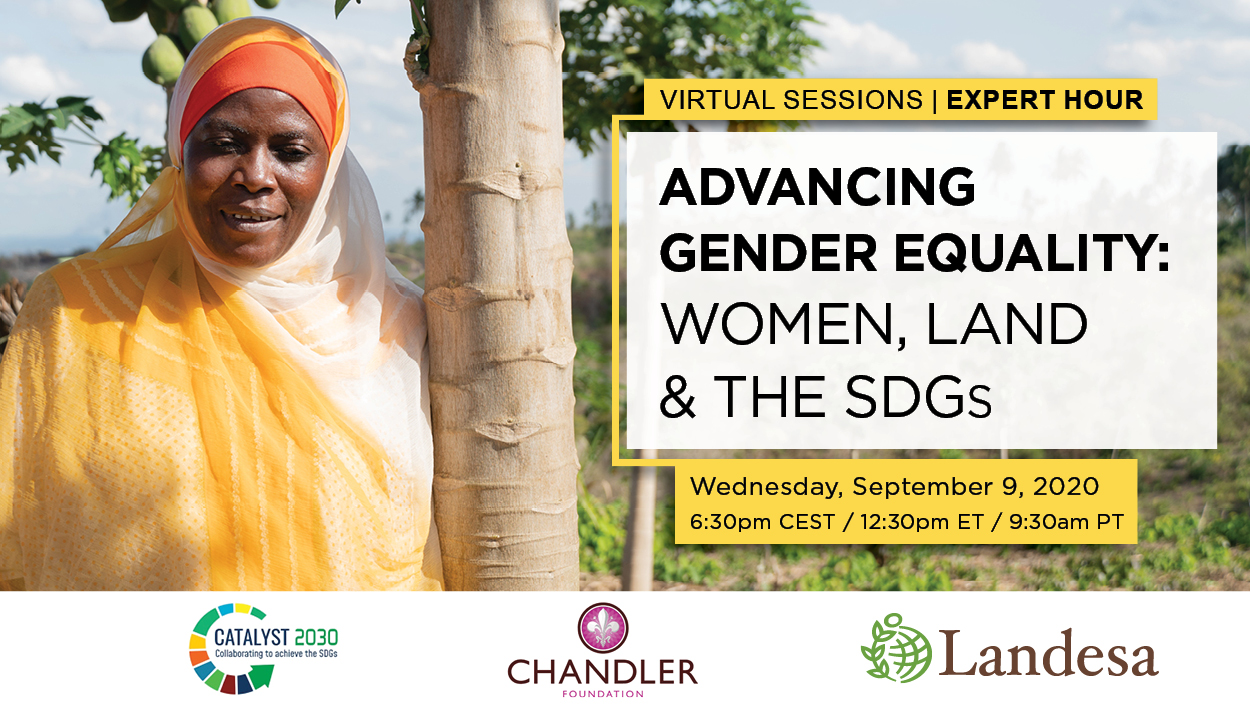Expert discussion will examine barriers to women’s land rights and discuss strategies for policymakers, advocates, and governments to create opportunities for women’s economic and social empowerment.
Around the world, land is arguably the most important asset and a cornerstone of economic opportunity, entrepreneurship, and social empowerment. But in many places, rights to land are not equitably distributed to all – and women are most at risk. In fact, women face legal barriers to their land and inheritance rights in 40 percent of countries worldwide, according to World Bank data. Additional social and customary hurdles further constrain women’s equal rights to land and inheritance in many other places.
Nearly all countries have committed to addressing inequality in women’s rights to land. This requires a fundamental shift in the balance of power over resources. Land is the foundation for housing, livelihoods, access to capital, and status. Historically, property rights have benefited men, relegating women to second class citizenship and depriving them of economic and political power.
As the UN General Assembly convenes for its 75th session, this conversation is as relevant as ever. On Wednesday, Sept. 9, Chandler Foundation and Landesa in partnership with Catalyst 2030 will explore how strengthening women’s land rights can advance gender equality, fulfill the promise of the Sustainable Development Goals, and create a more prosperous and peaceful world for all.
Webinar: Advancing Gender Equality: Women, Land & the SDGs
Wednesday, Sept. 9 – 6:30 pm CET | 12:30 pm ET | 9:30 am PT
Moderated by Tim Hanstad, CEO of Chandler Foundation, the expert discussion will explore how land rights can empower women economically and socially, shift power dynamics in households and public spaces, and improve the lives and livelihoods of women, their families, and entire communities.
Panelists include:
- Faith Alubbe, CEO, Kenya Land Alliance
An attorney and human rights advocate, Ms. Alubbe has 15 years of experience working with women and communities on land rights issues, oversees the Transitional Justice Program for Kenya’s Human Rights Commission, and provides pro-bono legal services to residents of Nairobi’s slums and rural areas.
- Laura Birx, Deputy Director for Strategy, Planning and Management, Gates Foundation
Ms. Birx oversees the Agricultural Development’s team strategy and operations functions and manages cross-cutting portfolios like women’s empowerment, nutritious food systems, and monitoring and evaluation.
- Diana Fletschner, Senior Gender Expert and Director of Research, Landesa
A development economist and researcher, Ms. Fletschner has more than 20 years of experience teaching, conducting research, designing programs and tools, and monitoring and evaluating interventions with a special focus on rural women.
- Ann Veneman, Former Executive Director, UNICEF
Ms. Veneman served as the United States Secretary of Agriculture from 2001 to 2005 and as Executive Director of UNICEF from 2005 to 2010. She holds numerous awards and honors, including the Women Making History Award from the National Women’s History Museum.
Please join us for this important discussion: Register Here


